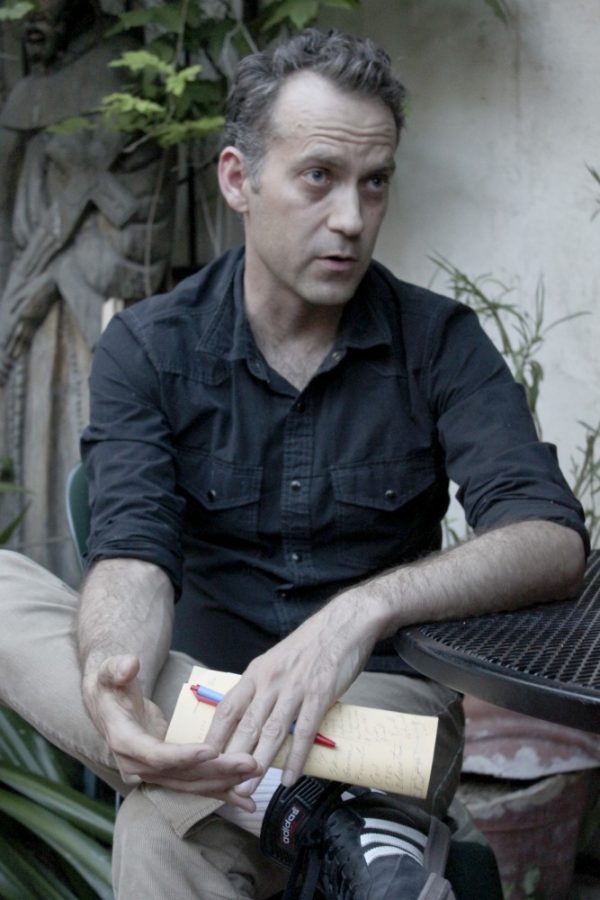GPSC presidential candidates discussed ways to fund a child care facility on campus as well as fight tuition and fee increases at an elections forum on Wednesday.
In his second semester as the Graduate and Professional Student Council presidential chief of staff, candidate Edward Beck explained that working with constituents opened his eyes to their needs. Many graduate and professional students work overtime conducting research, assisting professors and participating in graduate apprenticeships without proper compensation, he said.
“I realized that the quality of education and quality of research the UA prides itself in is being threatened by budget cuts,” said Beck, a second-year public health graduate student. “I may just be one person, but I believe I can make a difference.”
For Zachary Brooks, the council’s vice president and a second-year graduate student studying language acquisition and teaching, being passionate and deeply involved in an organization comes naturally, he said. He explained that learning about issues and making good, informed decisions is not only part of his personality, but therapeutic as well.
“When I know more, I tend to feel better,” he said. “Any time I think ‘I’m going to sit this year out,’ I feel compelled to serve and help out.”
The UA is the only institution in the Pac-12 without an on-site child care facility, which both candidates said was problematic.
To remedy the issue, Brooks said he will bring up the importance of an on-campus facility every time he speaks with an administrator. The lack of such a facility hurts students, veterans, faculty and staff, he said.
“People say, ‘You’re just talking,’ and that’s true,” Brooks said. “But it’s discourse that raises the consciousness level.”
This year, GPSC allocated $25,000 of the $26,000 grant it received from the Student Services Fee Advisory Board to Life and Work Connections, a division of human resources, to help students with child care needs. As a member of the board, Brooks said he was able to fight for these funds “all the way through.”
Beck also said he plans to work with administrators on the issue. In doing so, the UA can compromise with the state Legislature to help fund a facility that is not only affordable, but competitive.
“It (the facility) has to be competitive for how much it will cost,” he said.
Beck also stressed the importance of fighting increased tuition and fees after years of budget cuts. Tuition is “obviously way too high,” he said, and financial aid for both in and out-of-state students needs to be prioritized.
Stipends for Ph.D. candidates were also a concern for Beck — he said that, in comparison to other Research I institutions, the UA falls behind in funding doctoral candidate research. This gives these types of students a disincentive to attend and stay at the university, he said.
“We find ourselves at a pivotal time where (state) elections are right around the corner,” Beck said. “The voters are the ones paying tuition and seeing the increases. It’s in their best interest to find a remedy, rather than cutting budgets.”
Brooks said he was bothered by the UA’s habit of bundling fees. For example, a student may support a fee for the Student Recreation Center but may be against a fee for health services. Since the UA’s Health and Recreation fee is bundled, he said, students can’t vote for one or the other.
“This is an effective strategy for administration, but it’s not transparent,” he said. “Each student should be allowed to evaluate each fee based on its merit.”









